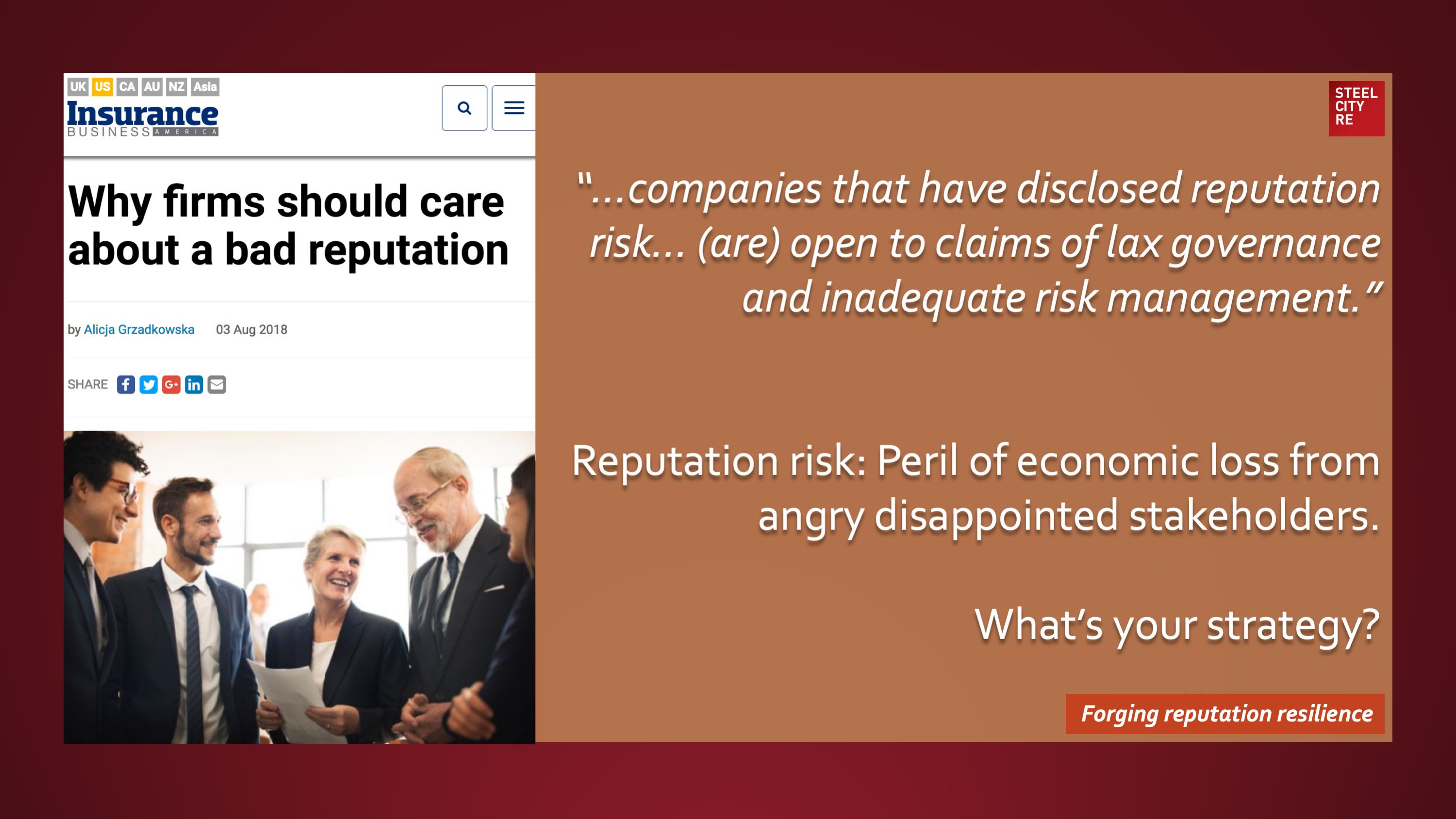“’By not laying out the strategy for mitigating (#reputation) #risk, they’re effectively creating an expectations gap – the risk,'” CEO Nir Kossovsky told Insurance Business America.
“Over that time, the awareness of the notion that political, economic, and social issues have bearing on a company’s economic performance became progressively better appreciated by companies and, of course, by their boards,” he explained, though there is still a gap in how the risk is addressed. “Very few of the firms noted that reputation loss was grounds for either a compensation claw back or more specifically, termination.”
More firms are taking notice of the importance of the reputational peril. In 2012, Kossovsky said that two-thirds of companies were disclosing that risk in their 10Ks, whereas today, 90% of public companies are doing so.
Reputational risk comes to life when a company goes from one state of being to another, where they suddenly have a lower value and lose all of the benefits of being a reputable brand.
“Reputation value is the value baked into a firm, baked into pricing, baked into employee behaviour,” said Kossovsky. “A firm with a good reputation will be able to charge a higher price point and they tend to sell more at a higher volume more rapidly. The decision cycle is faster, employees tend to work overall more efficiently and for a lower cost because you have less turnover, less internal friction.”
August 20, 2018
Insurance Business
“…companies that have disclosed reputation risk… (are) open to claims of lax governance and inadequate risk management.”
Reputation risk: Peril of economic loss from angry disappointed stakeholders.
Reputations are valuable strategic intangible assets. Threats to these assets⏤ enterprise reputation risks, often mislabeled “brand risks” ⏤ need to be managed, and management needs to be overseen through reputation risk governance lest reputational damage or reputational harm result in long-tailed go-forward losses in economic value and/or political power. Because these intangible risks arise from the interplay of stakeholder expectation, experiences, and media amplification, parametric insurances for intangible asset risks, for reputational value, for reputational harm, and for reputation assurance help mitigate risk by telling a simple, convincing and completely credible story of quality reputation governance to stakeholders. This story telling effect is the expressive power of insurance complementing insurance’s better known instrumental power of indemnification.
Risk management, risk financing in insurance captives, and risk transfer through reputation insurances comprise the constituent elements of a comprehensive solution. What’s your strategy?

